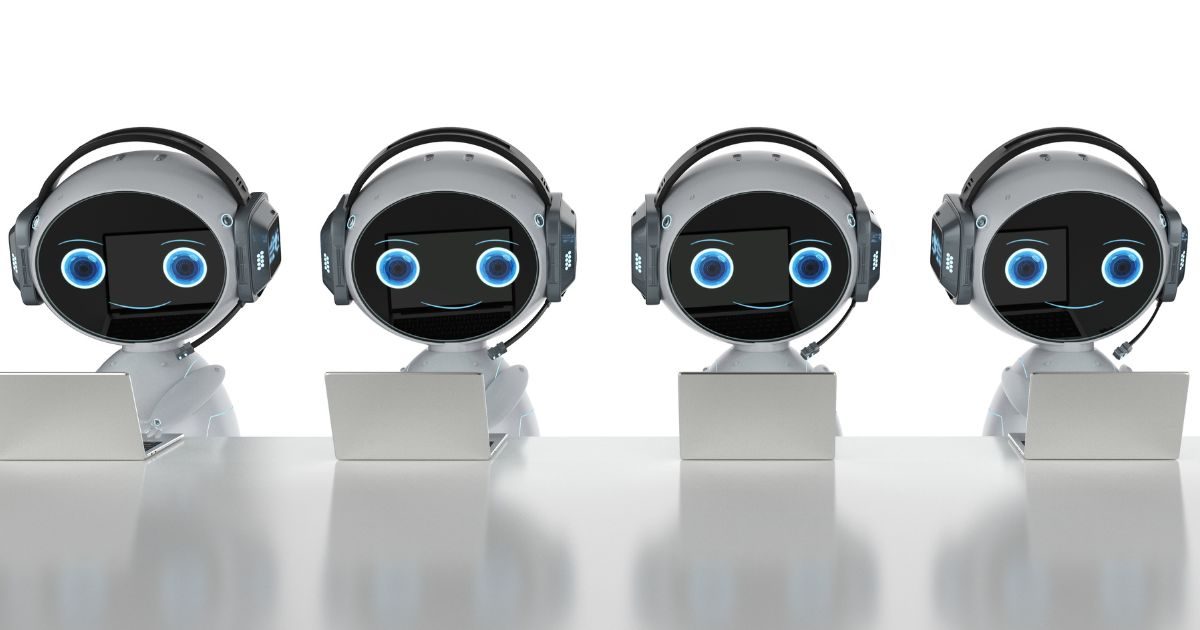Are the days of human touch in customer service numbered? With artificial intelligence (A.I.) rewriting the rules of customer interactions, it’s a question worth pondering. However, as the plot thickens, let’s delve into the fascinating and somewhat controversial journey of A.I.’s involvement in customer service calls, discussing its pros, cons, and the big question — will A.I. supersede live telephone operators in this arena?
The AI Evolution in Customer Service
The winds of change have been blowing in the customer service industry, and they’re infused with A.I. Chatbots, voice assistants, and automated systems are no longer a thing of sci-fi movies — they’re here, and they’re transforming customer interactions as we know them.
Not merely confined to answering commonly asked questions, these A.I. systems have stepped up their game, working like clockwork to handle a barrage of routine queries.
This efficiency has unlocked a treasure trove of benefits for both customers and businesses.
The Benefits and Perks of AI on the Customer Service Frontline
When A.I. takes the helm in customer service calls, several compelling advantages come into play:
- A Leaner, Meaner Budget: A.I. has the ability to juggle multiple calls concurrently, bypassing the need for a legion of live operators and, as a result, slashing operational costs.
- Always on Duty: Unlike human operators governed by the constraints of working hours, A.I. stands ready to assist 24/7 — holidays, time zones, or after-hours be damned!
- Precision & Consistency: A.I. is designed to deliver accurate and consistent information, bypassing human errors or variations. This dependability fosters customer trust and heightens satisfaction levels.
- Snap Responses: A.I. is synonymous with promptness. Customers are accorded immediate responses, reducing hold times and enhancing their overall experience.
See also: How to bypass waiting on hold
The Downside of AI in Customer Service
The A.I. revolution isn’t without its bumps.
A few considerable challenges linger, tempering the otherwise rosy picture:
- The Empathy Deficit: A.I. lacks the emotional intelligence and personal warmth that human operators bring to the table. This void can leave customers feeling detached or misunderstood, particularly during emotional exchanges.
- The Complexity Conundrum: While A.I. is learning fast, it still grapples with intricate or unique customer situations demanding subtle, nuanced responses — a sphere where human operators excel.
- Language & Accent Woes: Regional dialects and accents can trip up A.I. systems, resulting in miscommunications and potential frustration for customers.
- Poor User Experience: Customers reported feeling frustrated when using an online chatbot, typically found on customer service portals.
Harmonising AI and Human Efforts
So, does the future of customer service lie solely with A.I.? Not quite. Although A.I. is revolutionizing the landscape, its complete takeover of live operators is unlikely in the foreseeable future. The key lies in a harmony — a blend of automation and human touch:
- Routine Matters: For simple, repetitive queries, A.I. proves its mettle, freeing human operators to tackle more complex issues.
- Human Connect: Despite A.I.’s strides, human operators remain indispensable, offering personalized support and empathy, particularly when the stakes are high, or unique problems surface.
- Unrelenting Progress: To truly enhance customer interactions, A.I. must continuously evolve, striving to better comprehend human language, accents, and emotional subtleties.
So, Will Customer Service Agents be Replaced with AI?
In a nutshell, while A.I. is a game-changer in the realm of customer service calls, it’s not an outright substitute for human operators.
The magic lies in the blend — melding the efficiency and precision of A.I. with the human warmth and adaptability of live agents, businesses can then deliver unforgettable customer experiences that speak to a broad spectrum of needs. The future, it seems, is a collaborative one.



